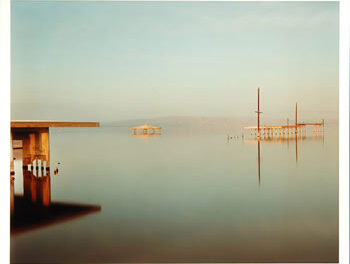A hit of a recent EMF season was baritone Philip Lima and he had been scheduled to do both a recital and several community outreach activities during the week ending March 12, but an accident less than a week before led to a mad scramble to find another singer and an accompanist at the last minute. Baritone Daniel Washington, active internationally in both opera and recitals, was far more than a “make do” replacement. Considering the short time available for rehearsal, MFGS was doubly lucky that Inara Zandmane, in her first year as staff accompanist for the UNCG School of Music, was not away for spring break and willing to fill the breech. The baritone arrived Tuesday evening and worked briefly with the pianist before presenting a program to 1000 school children Wednesday followed by rehearsals of Fauré’s Requiem with a local church. There was little evidence of abbreviated collaboration in their March 12 recital in Christ United Methodist Church on Holden Street in Greensboro.
Handel’s opera Berenice was dropped after four performances in 1737 but did not disappear; a Newport recording may still be available. Washington opened the concert with “Si, tra I ceppi” from this opera, followed by the familiar aria “Where’er you walk,” from Semele. Zandmane quickly reined in the piano’s volume to compensate for the resonant church acoustics. In addition to clear diction, the baritone’s voice was very evenly produced and supported throughout its range; his richly plangent lower register was particularly sweet and pleasing. Three favorites from Fauré’s Mélodies followed – “Au bord de l’eau,” with its suggestion of the flowing stream, “Clair de lune,” with its striking sotto voice , and a superb rendering of “Mandoline,” with its evocation of lovers serenaded by strumming gallants.
Chestnuts from Richard Strauss, with fuller scoring, suggesting an orchestra, gave Zandmane more room to shine, and she wove a rich tapestry of support. Washington confessed to having been a “ham” since the age of 5 when he wanted to follow his older sister and father into the church choir. His extensive stage experience led to more overt portrayal of each song in contrast to the more usual immobile mannequin with limited, semaphore-like gestures. “Heimliche Aufforderung” had a fine sense of line, while “Traum durch die Dämmerung” featured the best of his lowest and highest notes along with a wonderful “ppp” ending. Another quiet ending and a striking piano score were features of “Ruhe meine Seele,” while “Zueignung” was the most familiar tune.
Because they are too rarely programmed, Washington’s set of art songs by African-American composers held the most interest. It would not take a feminist to question whether the woman in Robert Owens’ “Faithful One,” featuring the refrain “I’m sure she’ll let me in,” was a true lover or a doormat for a self-centered man. Too long to be a true haiku, “Compensation” by Charles Lloyd, Jr. went by too fast for me to grasp; it compares favorably with Satie or Poulenc. Two songs were clearly winners, “Sence you went away” by Leslie Adams featured a fine text, equaled by the vivid imagery of Florence B. Price’s “Song to the Dark Virgin.” Predictably, three spirituals in the spirit of the African-American church were winning. “I got shoes” was heard in Hall Johnson’s arrangement while “Sometimes I feel like a Motherless Child” was arranged by Moses Hogan. “Here’s One,” an arrangement by William Grant Still was a standout. Washington’s stage experience was evident in a rousing rendition of “I Got Plenty of Nuthin'” from Gershwin’s Porgy and Bess that served as the single encore.











